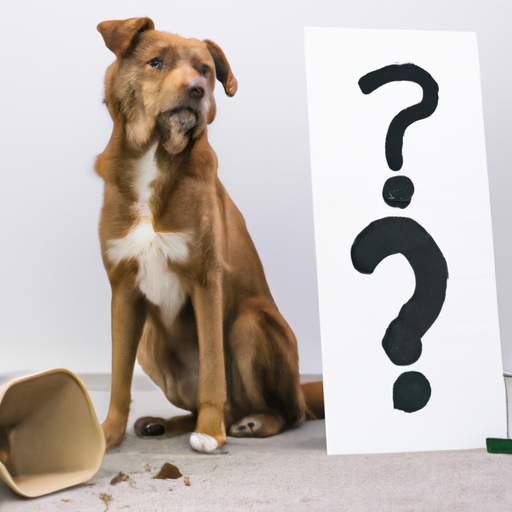As a caregiver for both canine and feline companions, you might have noticed a rather peculiar and somewhat unsettling behavior from your dog: the consumption of cat feces. While it’s not the most pleasant topic, understanding why dogs eat cat poop and how you can prevent it can significantly improve the health and well-being of your pets.
Understanding Coprophagia in Dogs
Coprophagia, or the act of consuming feces, is a behavior seen in various animal species, including dogs. It’s something that can be both confusing and frustrating for you, a caregiver. Let’s dive into why dogs tend to exhibit this behavior.
- Nutritional Needs: Cat food is rich in proteins and fats, making their feces an attractive source of nutrients for dogs. It’s not the most appetizing thought, but it’s a reality that stems from the primal instincts of dogs.
- Curiosity: Dogs are naturally curious creatures. They explore their environment primarily through their sense of smell and taste. Hence, they might eat cat poop out of simple curiosity.
- Behavioral Issues: Sometimes, this behavior might be a symptom of boredom, anxiety, or attention-seeking behavior.
- Health Problems: Certain health issues, like malabsorption syndromes, diabetes, or thyroid disease, can give rise to increased appetite in dogs, leading them to eat cat poop.
Dangers of This Behavior
Eating cat poop poses several health risks to dogs. Here are the main ones:
- Cat feces can carry harmful parasites like Toxoplasma gondii, which can cause serious illness in dogs.
- The ingestion of litter (if your cat is a litter box user) can lead to gastrointestinal blockages.
- Dogs can also pick up bacteria and viruses from cat feces.
Preventing Your Dog from Eating Cat Poop
The issue of dogs eating cat poop can be managed through several measures. Let’s look at some of the ways you can deter this behavior.
- Keep the Litter Box Out of Reach: Place the litter box in a location that’s inaccessible to your dog. A baby gate or a cat door can be useful in this aspect.
- Clean the Litter Box Regularly: A clean litter box reduces the chance of your dog getting into it. Make it a habit to scoop the litter box daily.
- Provide Adequate Mental Stimulation: Keeping your dog mentally stimulated can deter them from this behavior. Toys, puzzles, and regular exercise can help keep their mind off the litter box.
- Seek Professional Help: If the behavior persists, you might want to consult a vet or a professional dog behaviorist.
The Role of Diet in Coprophagia
A balanced diet can deter coprophagia in dogs. If your dog is eating cat poop due to nutritional deficiencies, providing a well-balanced diet can help.
| Essential Nutrients | Why It’s Important | Sources |
|---|---|---|
| Protein | Essential for growth and repair | Meat, fish, eggs |
| Fats | Provide energy, support cell function | Fish, flaxseed, olive oil |
| Carbohydrates | Provide energy | Rice, potatoes, oats |
| Vitamins and Minerals | Support various bodily functions | Fruits, vegetables, supplements |
Frequently Asked Questions (FAQ)
1. Is it normal for dogs to eat cat poop?
While it’s not uncommon for dogs to eat cat poop, it’s not a behavior that should be encouraged due to potential health risks.
2. Can eating cat poop make my dog sick?
Yes, eating cat poop can make your dog sick. Cat feces can contain harmful parasites, bacteria, and viruses.
3. How can I stop my dog from eating cat poop?
You can stop your dog from eating cat poop by keeping the litter box out of reach, cleaning the litter box regularly, providing adequate mental stimulation, and ensuring a balanced diet.
4. Should I take my dog to the vet if it eats cat poop?
If your dog shows signs of illness after eating cat poop, or if the behavior persists despite preventative measures, a visit to the vet is recommended.
In conclusion, while the act of dogs eating cat poop can be quite unsettling, understanding the reasons behind it and taking appropriate preventative measures can ensure the health and happiness of your canine companion. Remember, as a caregiver, the well-being of your pets is in your hands.



